Nose Surgery in Tunis
Search and Compare the Best Clinics and Doctors at the Lowest Prices for Nose Surgery in Tunis

Find the best clinics for Nose Surgery in Tunis
With Medijump you can browse 4 facilities offering Nose Surgery procedures in Tunis. The cheapest price available is $1,489 in Tunis
Nose Surgery in Tunisia
Price: $ 1,489
Nose Surgery in Tunis
Price: $ 1,489
Nose Surgery in Monastir
Price: $ 1,495
Poland offers the best prices Worldwide
Price: $ 101
From 37 verified reviews
Saoussen Saidani, 13 June 2020
My 12 year old daughter Lina has had surgery Pancreas tumorHeavy Operation which went very wellI thank all the staff of the Pasteur clinic for their hospitality and their hygiene ...I thank the doctors who attended the operation and in particular the surgeonAYADI Sofiene who accompanied us from the start for his professionalism as well as DR Walid Miraoui. The discovery of this tumor is done in a very short time a week to manage allThe support of Surgeon Ayadi Sofiene was really perfect as a parent we were reassured and above all in confidence.And especially I thank them for the moral support of My Daughter Lina who kept the smile until the end and who It is found in Total confidenceThank you so much for saving our childMr er Mrs Saidani
From 11 verified reviews
Toumi Mondher, 02 April 2019
The Department of Extraction and Billing at the Center of Imaging and Radiology, two patients, treated me with a reputation as a Tunisian clinic, and I bear the responsibility to speak this
Clinique Taoufik, can be found in Boulevard Mohamed Bouazizi, Tunis, Tunisia and offers its patients Nose Surgery procedures as well as 225 other procedures, across 24 different procedure categories. At present, there is no pricing information for Nose Surgery procedures at Clinique Taoufik. The pricing information is quite specialised, so it's only available on request, and the average price is around ฿66,381. Many medical professionals work at the Clinic, with 10 in total, and Clinique Taoufik is accredited by just one known accreditations institute, ISO 9001:2008
Cosmeticare Travel, can be found in Boulevard Mohamed Bouazizi, Tunis, Tunisia and offers its patients Nose Surgery procedures as well as 34 other procedures, across 4 different procedure categories. At present, there is no pricing information for Nose Surgery procedures at Cosmeticare Travel. The pricing information is quite specialised, so it's only available on request, and the average price is around $1,845. Currently, there's no information available about the doctors at the Hospital, and Cosmeticare Travel is not accredited by any recognised accreditations institutions.
Clinic Apollon, can be found in Boulevard Mohamed Bouazizi, Tunis, Tunisia and offers its patients Nose Surgery procedures as well as 90 other procedures, across 1 different procedure categories. At present, there is no pricing information for Nose Surgery procedures at Clinic Apollon. The pricing information is quite specialised, so it's only available on request, and the average price is around $1,845. A small team of medical professionals undertake all procedures at the Clinic, with 2 in total, and Clinic Apollon is not accredited by any recognised accreditations institutions.
Compare Before & After Photos of _procedure_photos.phpNose Surgery
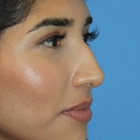
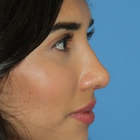
Full-side view
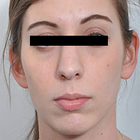
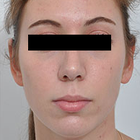
Front view
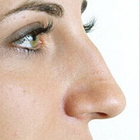
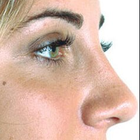
Full-side view
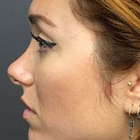
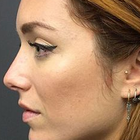
Full-side view
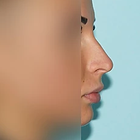
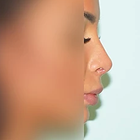
Full-side view
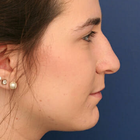
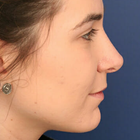
Full-side view
WHY US?
At Medijump, we're making medical easy. You can search, compare, discuss, and book your medical all in one place. We open the door to the best medical providers worldwide, saving you time and energy along the way, and it's all for FREE, no hidden fees, and no price markups guaranteed. So what are you waiting for?

Free

Best Price

Widest Selection

Risk-Free
What you need to know about Nose Surgery in Tunis
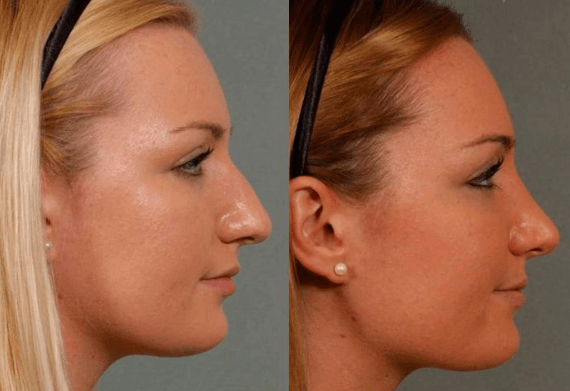
Commonly referred to as a Rhinoplasty, it is the medical term for reshaping of the nose or corrective surgery of the nose. It is one of the most common facial plastic surgeries (Facelift) procedures performed. Nose surgery can be performed to change the consequence of genetics, birth defect or nasal injury. It can be performed to enhance the appearance and/or to improve nasal breathing.
Surgery can be performed to correct nasal humps, the curvature of nose-bridge, nose tip irregularities, and asymmetry in the nostrils. The nasal appearance can be altered in various ways using intra-nasal chisels. Nose surgery procedures generally fall under three types: open rhinoplasty, closed rhinoplasty, and tip rhinoplasty. Rhinoplasty is normally performed under general anesthesia and will not leave any visible scars on the nose.
What does a Nose Surgery Procedure Involve?
Nose surgery is an individualized surgery. Before the surgery, you will need to discuss important factors with your surgeon to determine if it is suitable for you. Your surgeon will review your medical history, including your previous surgeries, medical conditions, and any medications you are taking. You will need to have a complete physical examination, such as blood tests. Your surgeon will also consider your other facial features, the skin on your nose, and what you would like to change or correct. Then, your surgeon will develop a customized plan for you. Two weeks before and after surgery, avoid any medications that contain aspirin or ibuprofen, such as Advil and Motrin IB because these medications can increase bleeding. You will need to also stop taking herbal remedies and over-the-counter supplements. If you are an active smoker, stop smoking because smoking can slow your healing process and increase the risk of getting an infection.
During the actual surgery, you will be given either local anesthesia or general anesthesia. The type of anesthesia depends on how complex the surgery is and what the surgeon would prefer to use. Then, the surgery will start by making incisions inside your nose or at the base of your nose between your nostrils. Your surgeon will reshape the inner bone and cartilage underneath your skin to make a more pleasing appearance.
There are several ways to change the shape of your nasal bones or cartilage, depending on your nose’s structure and how much needs to be removed or added. If only small changes are required, your surgeon may use cartilage taken from deeper inside your nose or your ear. However, for a much larger change, your surgeon may use cartilage from your rib, implants, or bone from other parts of your body. When the changes are finished, your surgeon will place the nose’s skin and tissue back. The incisions will be closed by stitches.
How Long Should I Stay in Tunis for a Nose Surgery Procedure?
If everything goes well, you can go back to your hotel on the same day once the effects of anesthesia wear off. However, you will need to stay in a recovery room for a few hours so the staff can monitor you. Some people may need to stay in hospital overnight. After you are discharged from the hospital, you will need to stay in Tunis for at least 10 to 14 days for initial recovery, follow-up checkups, and for the stitches to be removed.
What's the Recovery Time for Nose Surgery Procedures in Tunis?
The recovery period for nose surgery can be different from person to person. In general, 2 to 3 weeks is needed until you can get back to your full normal routine and 3 to 6 weeks until you can do any strenuous activity. However, you should be able to go back to work within a week, except if your job requires strenuous physical activity. You will feel gradually better each day in the first week. You will experience swelling, which can take six months to subside. The only people who will notice the swelling is you and your surgeon. Your final nose shape will be apparent after it is completely healed.
What sort of Aftercare is Required for Nose Surgery Procedures in Tunis?
After the surgery, you may need to wear a nasal splint for the first week. The splint is used to protect and support your nose. Your nose may be congested due to swelling or from the nasal splint. You need to rest in bed with your head raised higher than your chest to reduce bleeding and swelling. For a few days after the surgery, you may also experience slight bleeding and drainage of mucus. Your surgeon may place a “drip pad” under your nose to absorb drainage.
Your surgeon may ask you to avoid strenuous activity, take baths instead of showers, avoid blowing your nose, eat high-fiber foods to avoid constipation, not to do any facial expressions (smiling or laughing), not wearing pull clothing and wear button-downs instead.
For at least several weeks after the surgery, do not rest eyeglasses or sunglasses on your nose to prevent pressure. You should also wear SPF 30 sunscreen when you are outside because too much sun can cause permanent irregular discoloration to your nose. Do not put anything such as ice or cold packs on your nose even though it is swelling as the swelling will go away faster by limiting your dietary sodium.
What's the Success Rate of Nose Surgery Procedures in Tunis?
Nose surgery is known to have around 80% to 90% success rate. Nevertheless, just like any other surgery, it still has possible risks and complications. These risks are bleeding, infection, numbness, permanent nerve damage, and an adverse reaction to the anesthesia. You should call your surgeon immediately if you suspect any of the symptoms. Other possible risks are difficulty breathing through your nose, uneven-looking nose, persisting pain, swelling, and discoloration, scarring, septal perforation, and the need for a second or third surgery.
For an in-depth analysis of the closed rhinoplasty procedure with before and after images, watch this short video.
Are there Alternatives to Nose Surgery Procedures in Tunis?
If you do not want to undergo surgery, or if it is not suitable for you, you can get filler injections, such as Botox, Juvaderm, and Restylane. They can change the shape of your nose and only require a short visit to the doctor. This method is not painful and needs no incisions or stitches.
Whilst the information presented here has been accurately sourced and verified by a medical professional for its accuracy, it is still advised to consult with your doctor before pursuing a medical treatment at one of the listed medical providers
No Time?
Tell us what you're looking for and we'll reachout to the top clinics all at once
Enquire Now

Popular Procedures in Tunis
Prices Start From $404

Prices Start From $111

Prices Start From $70

Prices Start From $220

Prices Start From $1,945

Prices Start From $192

Prices Start From $500

Recommended Medical Centers in Tunis for Nose Surgery

- Interpreter services
- Translation service
- Religious facilities
- Medical records transfer
- Medical travel insurance
- Health insurance coordination
- TV in the room
- Safe in the room
- Phone in the room
- Private rooms for patients available

- Interpreter services
- Translation service
- Religious facilities
- Medical records transfer
- Medical travel insurance
- Health insurance coordination
- TV in the room
- Safe in the room
- Phone in the room
- Private rooms for patients available

- Interpreter services
- Translation service
- Religious facilities
- Medical records transfer
- Medical travel insurance
- Health insurance coordination
- TV in the room
- Safe in the room
- Phone in the room
- Private rooms for patients available

- Interpreter services
- Translation service
- Religious facilities
- Medical records transfer
- Medical travel insurance
- Health insurance coordination
- TV in the room
- Safe in the room
- Phone in the room
- Private rooms for patients available

- Interpreter services
- Translation service
- Religious facilities
- Medical records transfer
- Medical travel insurance
- Health insurance coordination
- TV in the room
- Safe in the room
- Phone in the room
- Private rooms for patients available

- Interpreter services
- Translation service
- Religious facilities
- Medical records transfer
- Medical travel insurance
- Health insurance coordination
- TV in the room
- Safe in the room
- Phone in the room
- Private rooms for patients available
Nose Surgery in and around Tunis
About Tunis
Tunis is the capital and the largest city of Tunisia and is the center of government and administration as well as the center of commercial and cultural activities. It is divided into two parts, the old city known as Medina and the new city or Ville nouvelle. Even though it is located on the southern shores of the Mediterranean Sea, the city does not have many beaches. Still, it has managed to attract millions of tourists in 2018 thanks to its rich history displayed in numerous ancient buildings. These buildings have an enchanting blend of North African and French Architecture that will leave anyone in awe. Many tourists come to see the Roman ruins of Carthage or to stroll around and shop in the Medina.
Tunis is known to have a high standard of healthcare, which attracts an increasing number of medical tourists each year. Many of the medical tourists come from other African countries that have an inferior healthcare system. However, the city’s excellent reputation in cosmetic surgery and dental treatment appeal to many patients from Europe, the Middle East, and Asia. The private medical centers are armed with the best equipment and English speaking staff. The Tunisian Ministry of Health regulates cosmetic and plastic surgeons to ensure that there is a high standard. In addition to exceptional healthcare, Tunis also offer attractive prices for medical treatment and the cost of living.
Popular Areas in Tunis
Although it is the largest city in Tunisia, Tunis can feel like a compact city and can be explored on foot. The city has a number of famous attractions that are always packed with tourists.
- Carthage was founded in the 9th century BC and was once a powerful empire of the Mediterranean as well as home to a wonderful civilization before being destroyed by the Romans in the Third Punic War. It was then to become an important Christian center until the Islamic invaders destroyed it. Today, the ruins have become a UNESCO World Heritage Site that tourists can visit.
- The Medina in Tunis is one of the most remarkable medieval medinas in North Africa. There are over 700 monuments within the area, from mosques to madrassas to historical places. It is easy to get lost in the impressive maze-like alleyways, but tourists are encouraged to admire the Islamic architecture and art or learn more about the city’s history. Tourists can also shop in one of the souqs selling everything from shisha pipes to shoes or enjoy one of the cafes.
- Sidi Bou Saïd is a picturesque cliff-top village with cobbled streets, blue-and-white walls, and glimpses of pristine blue waters. It is probably one of the most beautiful places in Tunisia. The beautiful architecture is a blend of the Ottoman and the Andalusian. It is now a sleepy fishing village perfect for anyone who wants to get away from busy city life. The village has been a gateway for artists, bohemians, and pilgrimage for centuries.
- Bardo Museum is the second-largest museum in Africa and the main attraction of this museum is the ancient Roman mosaics recovered from Carthage. The museum also exhibits Greek statues, artifacts of the region’s Berber, and the accomplishments of the Islamic culture in the country. Other than the exhibitions, the building itself is decorated in impressive historic Islamic decorative arts.
Weather and Climate in Tunis
Tunis has a hot-summer Mediterranean climate meaning the city enjoys warm and sunny weather all year round. The summer can be hot and dry because rain is very rare and the summer usually lasts from June to August and the average temperature is around 25 °C but can get as high as 40 °C. July and August are the high tourist season, especially at the beach resorts. The city begins to get rain in autumn, often accompanied by a short thunderstorm. The winter is the wettest season of the year because it can rain every two or three days and the temperature can drop to 7 °C in the morning and 16 °C in the afternoon. The rainfall decreases in spring, and in March, the temperature ranges between 8 °C to 24 °C and the sunshine usually becomes dominant in May.
Getting Around in Tunis
Tunis-Carthage International Airport is the main airport in Tunisia and the airport connects Tunis with other cities in the country as well as the rest of the world as it serves flights to and from the Middle East, Africa, and major Europeans countries. It is the hub for Tunisair, Tunisair Express, and Nouvelair, but there are not many budget airlines operating flights from the airport. To get to the city center from the airport, tourists can opt for a taxi or bus. The bus is operated by the SNT bus line and departs every 30 minutes. It is very affordable with a single ticket costing less than 1 TND. There is also a more luxurious and expensive bus line known as the TUT bus and the bus departs every 15 minutes. If you want a more private mode of transportation use an airport taxis and they are usually metered.
Tourists have plenty of options to get around Tunis. There is a tram system in the city with inexpensive tickets, usually around .48 TND. However, be aware that it can be packed during the rush hours. Taxis are a good option to get around, the taxis are metered, and the base fare is around .4 TND but can be much more expensive if you hail one off the street.
Tourist Visas in Tunis
Nationals of 97 countries including Australia, China, Singapore, the United States, and Russia can enter and stay in Tunis for up to 90 days without a visa. Other nationalities not listed in the visa exemption agreement are advised to check at their nearest Tunisia embassy or consulate. The country provides an online visa application to simplify the process of obtaining a visa to enter the country.
Additional Information
- Local Currency: Tunisian dinar (TND) is the official currency of Tunisia. 1 USD will get you 2.61 TND.
- Money & Payments: ATMs are widespread in Tunis. Credit Cards, particularly MasterCard and Visa, are accepted in most top-end restaurants, hotels, and shops. Tipping is by no means mandatory but will be greatly appreciated.
- Local Language: Arabic is the official language and French is very common. English is not widely spoken except in tourist areas and hospitals.
- Local Culture and Religion: Most of the population follows Islam, but there are small groups of Christian and Jews.
- Public Holidays: The city celebrates major nationals and Islamic holidays such as Independence Day, Eid Al-Fitr, and Prophet Mohammed’s Birthday.
Popular Searches
- Plastic Surgery in Thailand
- Dental Implants in Thailand
- Hair Transplant in Thailand
- Breast Augmentation Thailand
- Gastric Sleeve in Thailand
- Gender Reassignment Surgery in Thailand
- Laser Hair Removal in Bangkok
- Botox in Bangkok
- Dermatology in Bangkok
- Breast Augmentation in Bangkok
- Coolsculpting in Bangkok
- Veneers in Turkey
- Hair Transplant in Turkey
- Rhinoplasty in Turkey
- Stem Cell Therapy in Mexico
- Rhinoplasty in Mexico
- Liposuction in Mexico
- Coolsculpting in Tijuana
- Rhinoplasty in Korea
- Scar Removal in Korea
- Gastric Sleeve in Turkey
- Bone Marrow Transplant in India
- Invisalign in Malaysia
- Plastic Surgery in the Dominican Republic
- Tummy Tuck in the Dominican Republic
- Plastic and Cosmetic Surgery in Poland
- Rhinoplasty in Poland
- Hair Implant in Poland
- Dental Implants in Poland
- IVF in Turkey




